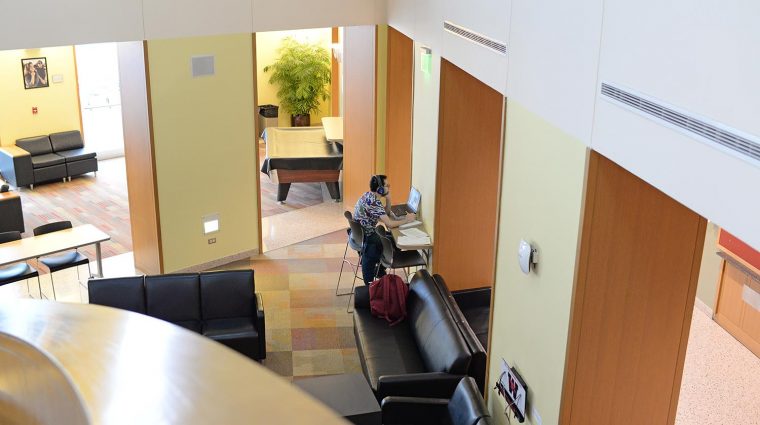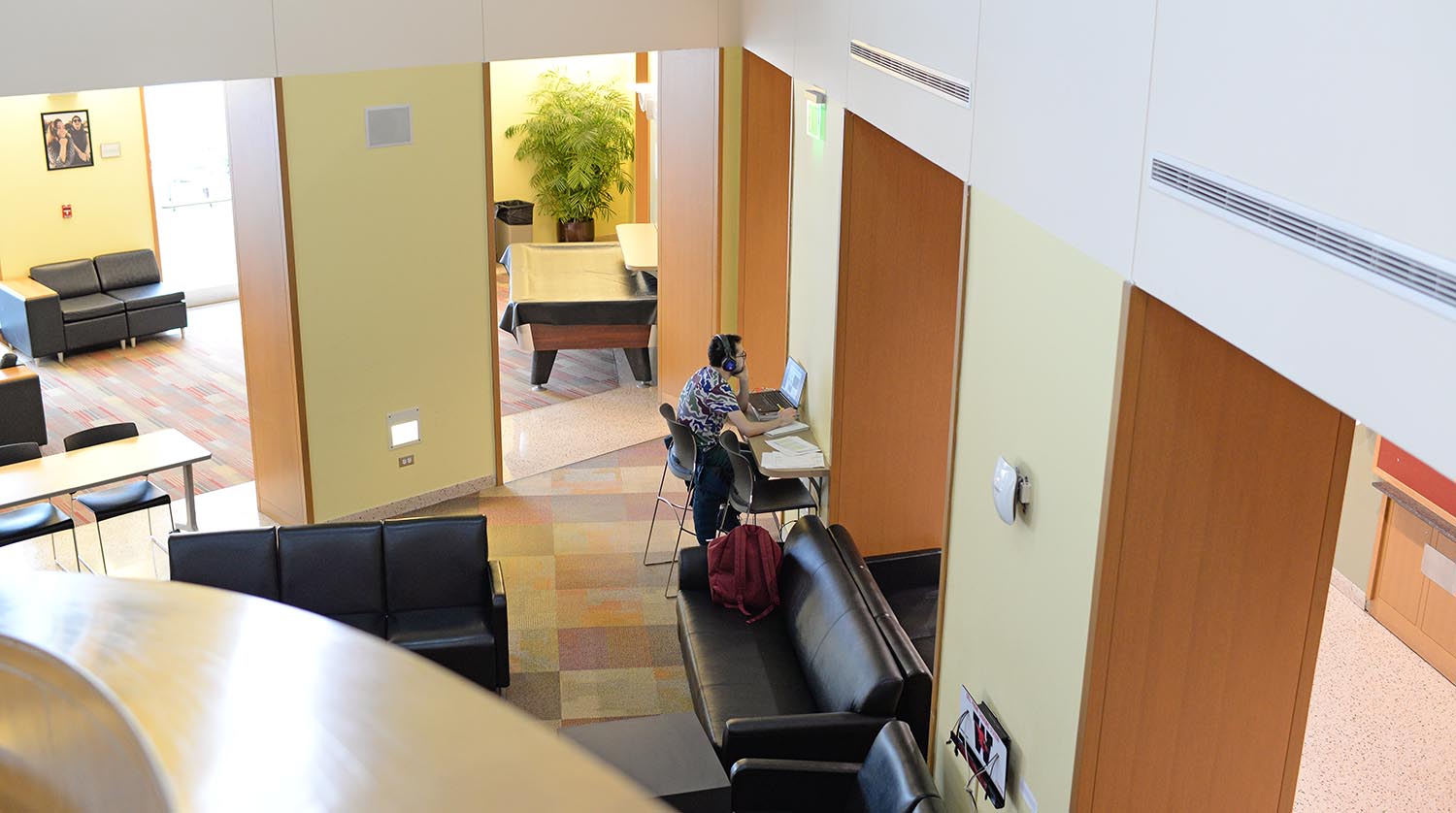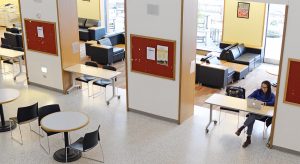Roth, Whaley, McLarney Host Video Forum for Students Remaining on Campus



On Sunday evening, President Michael S. Roth ’78, Vice President for Student Affairs Mike Whaley, and Medical Director Tom McLarney invited the approximately 300 students who will be remaining on Wesleyan’s campus for the spring semester to participate in a video forum hosted by the University’s virtual Zoom platform. The event was aimed at communicating important information about on-campus resources during the remainder of the semester and answering participants’ questions.
Although the University has temporarily transitioned to distance learning in efforts to reduce the spread of the novel coronavirus, students who are housing-insecure, who were unable to return to their homes, or who had extenuating circumstances were allowed to petition to continue to live on campus in Middletown.
“It’s a crazy moment at Wesleyan and around the world,” Roth said during the video forum. “There’s a lot we don’t know about what will happen in this country and around the world over the next several weeks. We do know that the best way to defeat this virus is to prevent it from passing from one person to another.”
Roth, McLarney, and Whaley stressed the importance of practicing the best advice of medical professionals for combatting the virus’s spread: washing hands frequently, avoiding touching your face, using hand sanitizer when necessary, and, most importantly, maintaining a physical distance from others.
“Whether you’re sitting on Foss Hill…or exercising outside, maintaining a physical distance from one another is really important over these next few weeks,” Roth said.
Spring semester courses resumed on March 23 after the two-week spring break. Faculty contacted students in each of their classes to update them on how the classes would continue to meet. In many cases, classes will continue to meet via Zoom and Moodle, regardless of students’ physical locations. Classes are “not going to be the same [as they had been when held in person], but we’re going to do our best,” Roth said. “The faculty is taking this very seriously.”
For on-campus students, the University is committed to continuing to provide essential services, such as dining, health services, and public safety. Dining Services is offering grab-and-go meals. This approach enables the University to provide the same dietary choices that students were used to, while minimizing opportunities for physical proximity.
The Davison Health Center will continue to serve students, and will be open Mondays through Fridays from 9 a.m. to 5 p.m., with doctors on call 24/7. However, anyone needing in-person care is requested to first call the Health Center at 860-685-2470—rather than walking in—to make an appointment to be evaluated.
“This gives us time to prepare for your visit,” McLarney said.
The Counseling and Psychological Services (CAPS) office will continue its normal hours and operations. Roth said that students should continue to schedule their appointments as usual.
A number of spaces will not be physically accessible during the remainder of the semester. Olin Library and the Science Library are closed for walk-in services, but librarians are available to answer questions via email and chat during regular business hours. The Freeman Athletic Center is closed until further notice.
“It feels very odd to be walking around right now,” Whaley, who lives on campus, said, given the recent closures and with most students and staff working remotely. “In my case, I’m walking the dog and not seeing many people.”
“We’re all new to this situation,” Roth added. “None of us want to be in this situation, but we’re going to do our best to be sure that we can provide educational experiences in a safe and healthy environment.”

